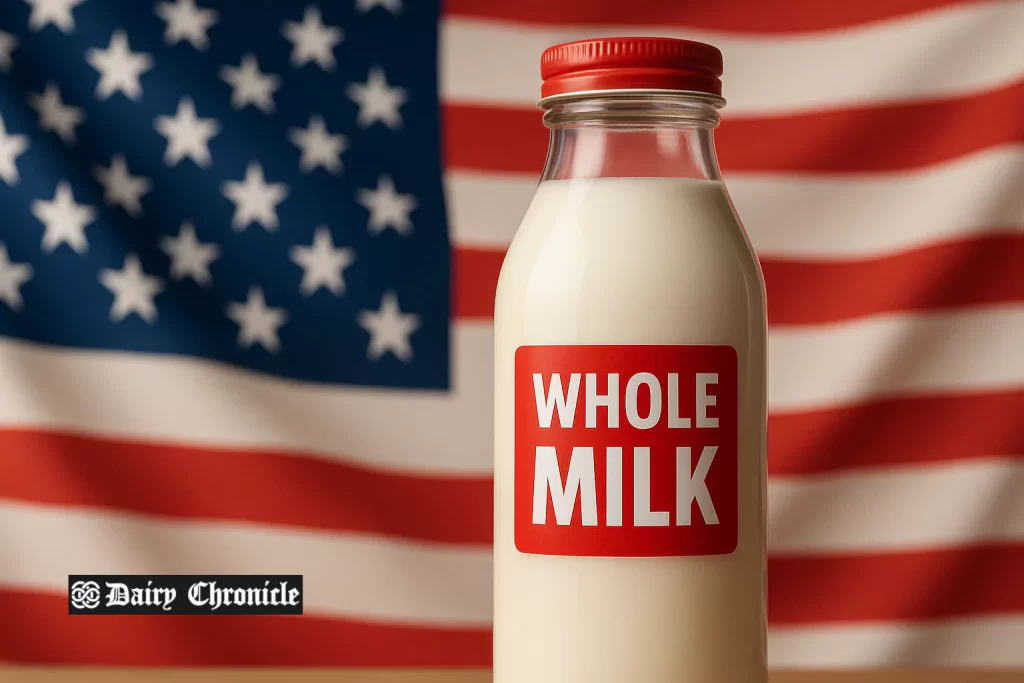The United States may soon revise its national dietary guidelines to include whole-fat dairy, a major shift from the current preference for low and non-fat options. The new guidelines, jointly developed by the U.S. Department of Agriculture (USDA) and the Department of Health and Human Services (HHS), are expected to be released by June 2025. These guidelines directly influence school meal programs, healthcare recommendations, and public nutrition policy.
The U.S. Department of Agriculture (USDA) and the Department of Health and Human Services (HHS), which together issue the federal Dietary Guidelines for Americans every five years, are finalizing updates that may include whole-fat dairy products for the first time in over a decade. These updated guidelines are expected to be released by June 2025, according to sources familiar with the matter.
The guidelines form the basis for federal nutrition standards, including the National School Lunch Program, the Supplemental Nutrition Assistance Program (SNAP), and public health advice provided by doctors and nutritionists. Currently, they recommend only low-fat and non-fat dairy options.
One source noted that the new recommendations may relax restrictions on saturated fats, specifically those found in dairy products, and shift focus toward minimizing ultra-processed food. These changes could have a sweeping impact on schools and health policy nationwide, particularly as schools finalize procurement orders for fall menus.
Diane Pratt-Heavner, Director of Media Relations for the School Nutrition Association (a nonprofit that supports school meal programs), said many school districts already placed food orders earlier in 2025, and changing them now would be a logistical challenge. However, she suggested that the government could provide flexibility, such as allowing whole milk in school meals.
USDA Secretary Brooke Rollins, during a June 10 press conference, did not confirm specific changes but hinted that a full release of the guidelines was imminent. Meanwhile, HHS Secretary Robert F. Kennedy Jr. has said the guidelines would emphasize whole foods and be published by August in a simplified four-page format.
A report linked to the “Make America Healthy Again” initiative, associated with Kennedy, criticized past guidelines for being influenced by corporate interests from the sugar and meat industries. The report also challenged the continued recommendation to limit saturated fat to less than 10% of daily calories, arguing instead for a focus on less processed food.
The pending changes come amid evolving debates in nutrition science, especially regarding the definition and health impact of ultra-processed foods. While no final decisions have been made, stakeholders across the food, education, and health sectors are watching closely.



